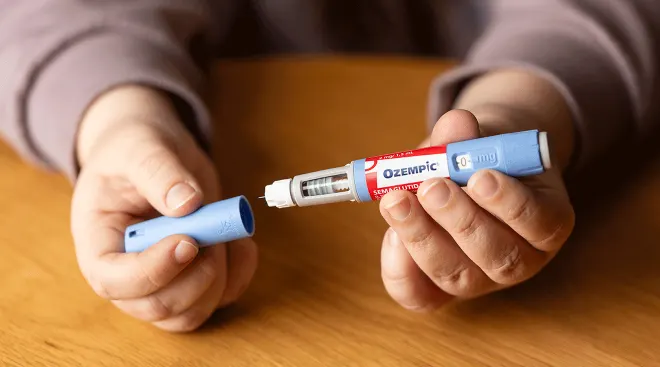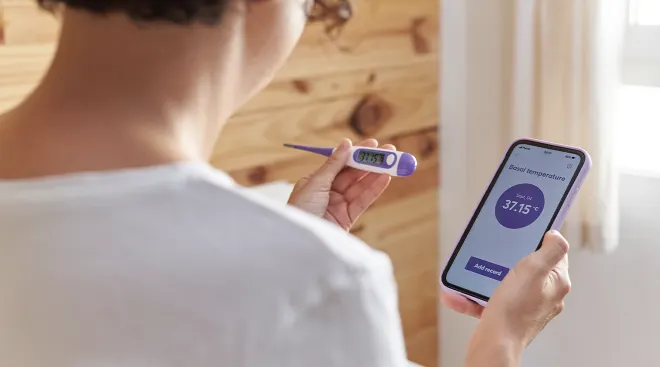The Future of IVG: What Is in Vitro Gametogenesis?
IVG, or in vitro gametogenesis, is a new technology with gigantic promise: It aims to one day make having a baby much easier for all types of families, including those struggling with fertility issues, women looking to get pregnant later in life and same-sex couples who desire children who share DNA with both parents.
Unlike in vitro fertilization (IVF), which requires the extraction of egg and sperm to kick things off, IVG will allow doctors to create reproductive cells from any cell taken from your body—like a snippet of skin or maybe even a strand of hair. If this sounds a little space-age, you’re right. Scientists still have lots of work to do (likely at least a decade!) before hopeful parents-to-be will be able to pursue this option—but we’re no longer light years away from seeing the first IVG baby.
“This would be one of those [technologies] that is revolutionary,” says Paula Amato, MD, a professor of obstetrics and gynecology at Oregon Health and Science University and president-elect of the American Society for Reproductive Medicine (ASMR). “If you could make eggs from skin cells, [that would] change the game for so many patients and change the way we practice IVF.”
Of course, while the possibility of IVG is very exciting, it also ushers in some potential issues, like legal implications and ethical concerns. Want to understand the full scope of this evolving field? Read on to learn about the future of IVG.
In vitro gametogenesis (IVG) is the means of developing gametes—reproductive cells like sperm or eggs—outside of the body. In theory, doctors could take any cell from your blood, skin or hair; reprogram it in a lab to become a gamete and then use that to create fertilized embryos that would eventually be implanted into a uterus.
Of course, it’s not that simple. IVG hasn’t yet been performed on humans, notes Amato, although researchers in Japan have used it to produce healthy and fertile offspring in mice. Once IVG research advances, it’ll likely fall into the assisted-reproductive-technology realm, with the potential to drastically improve the IVF process. “IVF is an intensive procedure [with the hormone] injections … and then the egg-retrieval process, which is essentially a surgical procedure that can cause bleeding or injury to other organs,” Amato says. “With IVG, we’d avoid having to do all that; it all would happen in the lab.”
You might be wondering: When will IVG be available? We’re still 10 to 20 years out from seeing the first IVG baby, notes Amato. Scientists at universities around the world and private tech companies are working on IVG from different angles. Many are working on the multi-step progression of reprogramming skin cells to become pluripotent stem cells, which then must be turned into gametes before they can develop into eggs.
As the science progresses in the US, though, the research bumps up against ethical and regulatory issues around using human embryos in medical testing. “You can’t use federal dollars on anything that affects an embryo, [which impacts] who does the research and where,” says Sonia Suter, a professor at The George Washington University Law School whose research focuses on emerging reproductive technologies and legal and bioethics issues in medicine and genetics.
IVG could help many people who are struggling to build a family. “IVG is really opening an avenue for people with infertility problems that can’t be surmounted by any of the technologies we have now,” says Andrea Braverman, PhD, a professor and psychologist with the obstetrics and gynecology department at Thomas Jefferson University.
For people with fertility issues, IVG could smooth out the traditional IVF route and eliminate the need of having to find a sperm or egg donor. Women could also use IVG if they decide to have a baby later in life, after their ovarian reserves have diminished, says Braverman.
IVG could also transform the way some same-sex couples conceive, enabling them to have children who are genetically related to both partners. “The pain of infertility, of not being able to grow your family as everyone else does, is very real,” says Braverman. “Being able to tell a same-sex couple that it doesn’t matter who you love, you can still build your family just like everyone else, is so thrilling and exciting.”
Despite IVG’s potential, it raises some big, uncomfortable questions that society and scientists still need to figure out.
A few concerns about IVG as it evolves:
- How safe is IVG? One big question about IVG is whether babies born via this method will be healthy in the long term, says Amato. “Is it safe? How do you decide it’s safe? What is the test to determine that?” says Suter. Even as IVG experimentation starts on animals and enters the early human embryonic stages, the results won’t tell us exactly what’s going to happen with a human baby—or adult—down the road, Suter adds.
- How can we protect IVG from being abused? “If you can use any cell and someone can just pluck a hair from your head which has your genetic makeup, are there concerns about this being abused?” notes Braverman.
- Will the FDA allow IVG procedures to move forward? The FDA isn’t allowed to accept applications for clinical trials that have to do with genetic modification of a human embryo, says Amato. “Whether they consider IVG a genetic modification isn’t clear at this point; they haven’t yet been asked to take a stand,” she says.
- How do we classify human embryos? Not everyone agrees on the moral status of embryos—some people think an embryo is equivalent to a person, notes Amato. This can present some tricky situations, and affects the way research can be conducted.
- Will IVG be available to everyone? Like many assisted reproductive technologies, IVG could turn out to be expensive, which raises issues about access, says Suter.
- Are we moving into an era of designer babies? Once perfected, IVG could also be used as a diagnostic tool, allowing families to screen embryos for genetic mutations they wish to avoid, says Suter. This could lead to families choosing embryos with physical traits they deem desirable, which could raise “issues about discrimination and who [we are] selecting against, which traits,” adds Amato.
- Should we set parameters around parental age? In theory, anyone of any age can provide cells to create an embryo. “Because you can, should you?” asks Braverman. How might being an older parent affect offspring?
- Who are the legal parents of an IVG baby? Because parentage laws differ from state to state, determining a baby’s lawful parent has always been a murky issue impacting some families who adopt or have children born via surrogacy or IVF. IVG may pose similar issues depending on how your jurisdiction defines a parent. “Today you can have as many as six parents—an egg donor, a sperm donor, the intended mother and intended father … a surrogate and the surrogate’s spouse,” says Suter.
Despite all the unanswered questions so far, IVG has the potential to be a tech revolution and a turning point for many hopeful families down the line. “We’ve been grappling with ethical issues at [the American Society for Reproductive Medicine] for decades,” says Amato. “The best way to do it is to have these ethical conversations run parallel with the innovation—we shouldn’t pause science while we wait for the ethical issues to catch up.”
Please note: The Bump and the materials and information it contains are not intended to, and do not constitute, medical or other health advice or diagnosis and should not be used as such. You should always consult with a qualified physician or health professional about your specific circumstances.
Plus, more from The Bump:
Paula Amato, MD, is a professor of obstetrics and gynecology at Oregon Health and Science University whose research focuses on innovative assisted reproductive technologies for treatment of infertility and ovarian aging. She is also the president-elect of the American Society for Reproductive Medicine. She earned her medical degree from the University of Toronto.
Andrea Braverman, PhD, is a professor and psychologist with the obstetrics and gynecology department at Thomas Jefferson University. She earned her PhD from the University of Pennsylvania.
Sonia Suter is a professor at The George Washington University Law School whose research focuses on emerging reproductive technologies and legal and bioethics issues in medicine and genetics.
Bioethics, Drawing the Line on In Vitro Gametogenesis, October 2019
Science, Offspring from Oocytes Derived from In Vitro Primordial Germ Cell-like Cells in Mice, October 2012
Journal of Law and the Biosciences, In Vitro Gametogenesis: Just Another Way to Have a Baby?, December 2015
Journal of Medical Ethics, Multiplex Parenting: IVG and the Generations to Come, October 2014
Learn how we ensure the accuracy of our content through our editorial and medical review process.
Navigate forward to interact with the calendar and select a date. Press the question mark key to get the keyboard shortcuts for changing dates.




















































